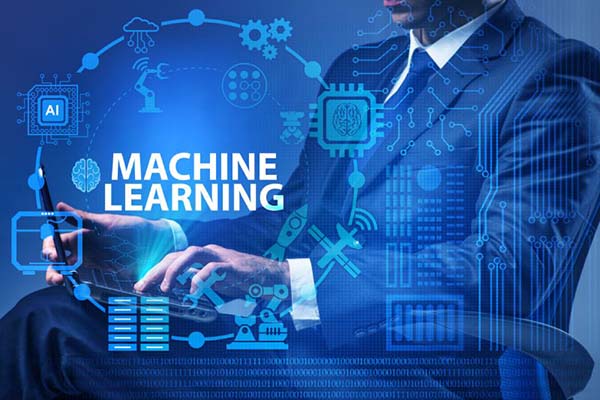Artificial intelligence and machine learning (ML) have the capacity to change and impact individual businesses, entire industries, and the global economy.
The manufacturing industry in particular can truly benefit from this new technology. However, many applications of machine learning in manufacturing also involve major challenges. Manufacturers must identify and overcome those obstacles to gain real benefits from ML.
This initial blog post in a series of seven highlights the top challenges and advantages associated with machine learning in manufacturing. In upcoming blogs, we will take a deeper dive into each factor. Let’s begin with a general review of the role of machine learning in the manufacturing industry.
Challenges of Machine Learning in the Manufacturing Industry
In order to make the most of machine learning, there are a few hurdles that every manufacturer — including your business — will need to overcome. Here are the top 3 challenges to keep in mind.
Challenge #1: Identifying Where to Use Machine Learning
Automation and interconnected digital systems have driven a Fourth Industrial Revolution (also called Industry 4.0). As Encyclopedia Britannica explains, this is a transformative and ongoing event. It reaches into so many aspects of business that it can be difficult to truly comprehend the revolution’s full scope.
Because machine learning can benefit so many areas of manufacturing through digital transformation, it can be difficult to figure out where to begin. However, there’s a simple and effective system to inform decision-making for machine learning in manufacturing and industry 4.0 applications.
Start by identifying the areas which could improve the most, with the least complexity. Automating manual, day-to-day tasks can often make a huge difference to operational efficiency and can be a great place to start. Next, consider whether the task you have in mind requires machine learning solutions in order to successfully be automated.
Challenge #2: Gathering the Data You Need
Gathering enough relevant data is one of the most challenging aspects of integrating machine learning into the manufacturing processes. Your business needs that data to make initial decisions, and machine learning algorithms need to be fed data to work effectively.
In order to make machine learning work for your business, you must have access to high-quality, consistent and accurate data. ERP software tailored to the manufacturing industry can help gather and consolidate data to mitigate these challenges.
Challenge #3: Implementing Machine Learning
In order to embrace the benefits of machine learning you will need:
- Infrastructure that can support this technology. You may need to upgrade antiquated systems to make sure you’re ready to make the most of machine learning.
- A trusted implementation partner. Create a clear implementation strategy and work with a knowledgeable partner to ensure success.
Advantages of Machine Learning in the Manufacturing Industry
There are many advantages to using machine learning in manufacturing. ML can enhance everything from how machine shops are run to how they are maintained. Machine learning can improve sustainability, product design, and efficiency, as well as reduce costs. Below we detail 3 key advantages that machine learning can deliver in manufacturing.
Advantage #1: Improved Operations
One of the most often-cited ways in which machine learning can reduce costs and enable greater efficiency day-to-day is by improving operations.
Business managers can use machine learning to identify unseen issues and support better predictive maintenance, streamline processes, optimize the supply chain, and more. Process improvement can also be achieved via the following applications of machine learning in manufacturing:
- Automation: Identify processes that can be automated and improved using machine learning.
- Robots: Use robots to complete dangerous and complicated tasks seamlessly.
- Maintenance: Keep on top of maintenance, identify issues as they arise and minimize downtime.
Advantage #2: Product Design and Improvement
Machine learning can reduce the risk associated with investing in new products. It can also make the continuous goal of improving existing products more achievable.
Successful product design and improvement are based on data, which can be thoroughly analyzed and put to best use via machine learning. Through data, machines can learn how people use your products, understand customer needs, and identify existing strengths and weaknesses.
The value of machine learning in additive manufacturing has also been established. Machine learning can vastly improve the accuracy of 3D printing, as DesignNews explains. ML technology learns from mistakes and predicts errors.
Machine learning can even help you make better custom or personalized products, RTI Insights points out.
Advantage #3: Quality Assurance
Machine learning can make quality control simple and product inspections more accurate. Machines can reliably detect faults and eliminate the potential for human error. This means improved overall product quality. Fewer defective products leave the production line and reach your customers.
Machine learning can therefore protect your brand reputation and the customers you serve.
Learn More about Machine Learning in Manufacturing
Smart manufacturing will be the way of the future. Those who embrace this new technology are in the best position to compete. We specialize in creating unique solutions for the manufacturing industry. To learn more about applications of machine learning in manufacturing and discuss solutions tailored to your unique business needs, contact CTND today.

